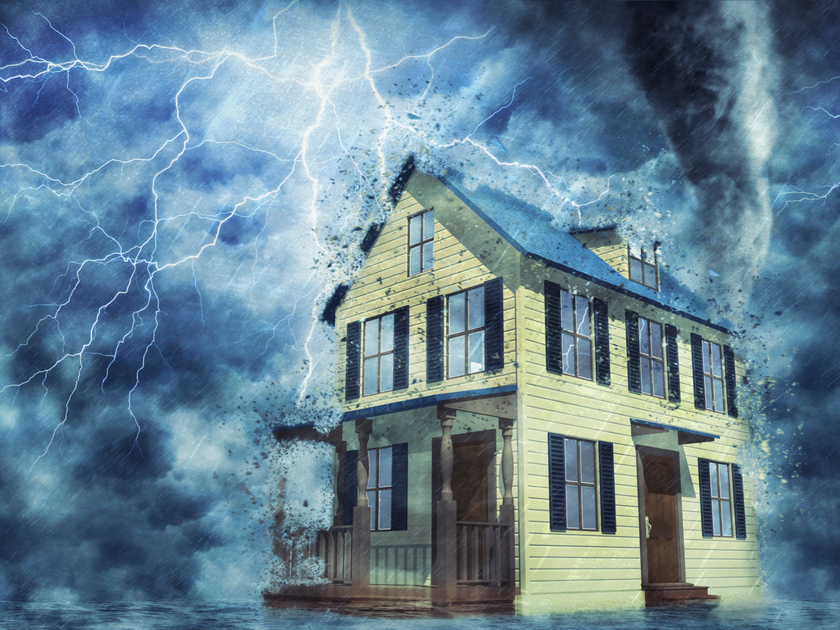Before a storm hits, take steps to stay safe and minimize damage.
- Regularly check local news, radio or your mobile device for information about storm watches or warnings in your area.
- Keep supplies in an emergency preparedness kit. Include water bottles, non-perishable food, blankets, first-aid supplies, flashlights and a battery-powered radio.
- Make sure your yard is free of heavy debris that could be tossed around in the wind. Trim trees to prevent limbs from falling on your house.
- Contact your local emergency management agency for information about local shelters, evacuation plans, emergency exit routes and so on.
Tornadoes
Tornadoes are capable of destroying homes, uprooting trees and hurling objects through the air.
- Outdoor sirens are common, but communities have different warning methods. Get to know your community's tornado warning system.
- Choose a safe area in your home where you and your family can gather if a tornado warning is issued. This area should be located in the basement or a room with no windows and located on the lowest level of your home.
- Conduct routine tornado drills with the entire family so everyone knows where to go and what to do if a tornado is approaching.
- Watch for signs of a tornado: a dark-colored sky, low-lying clouds, large hail or a loud roar.
Hurricanes
Hurricanes are violent storms that often cause property damage and life-threatening hazards, such as high winds and flooding.
- Create an evacuation plan and practice it ahead of time to avoid confusion during the event.
- Become familiar with your community's hurricane response plan; know the routes to local shelters, medical aid stations and so on.
- Close windows, doors and hurricane shutters. If you don't have hurricane shutters, board up windows and doors with plywood.
Thunderstorms
Lightning kills more people every year than tornadoes and hurricanes. Rain and heavy winds can cause flooding, damage to homes and widespread power outages.
- Learn about your community's emergency warning system and discuss lightning safety with your entire family.
- If a thunderstorm appears likely, postpone all outdoor activities.
- If a thunderstorm watch or warning is issued, take shelter in your home or other building.
- Shutter all windows and close exterior doors securely.
Floods
Flash flooding can be among the most damaging and costly of all natural disasters.
- Learn your vulnerability to flooding by determining the elevation of your property.
- If you live in a flood-prone area, keep sandbags, plywood and plastic sheeting on hand.
- Contact your local emergency management agency to learn what protective measures should be taken around your home.
- Seal the walls in your basement with waterproofing compounds to avoid seepage.
Standard homeowner's insurance typically doesn't cover flood damage. If you live in a flood-prone area, see the National Flood Insurance Program for information about obtaining flood insurance.
Power outages
Although your electric service is generally reliable, a storm may lead to an extended power outage. Be prepared. Have candles and flashlights available. Use a battery-powered radio or your mobile device to get information about the status of power restoration. For backup power, consider purchasing a generator and operate it safely according to manufacturer's guidelines.

